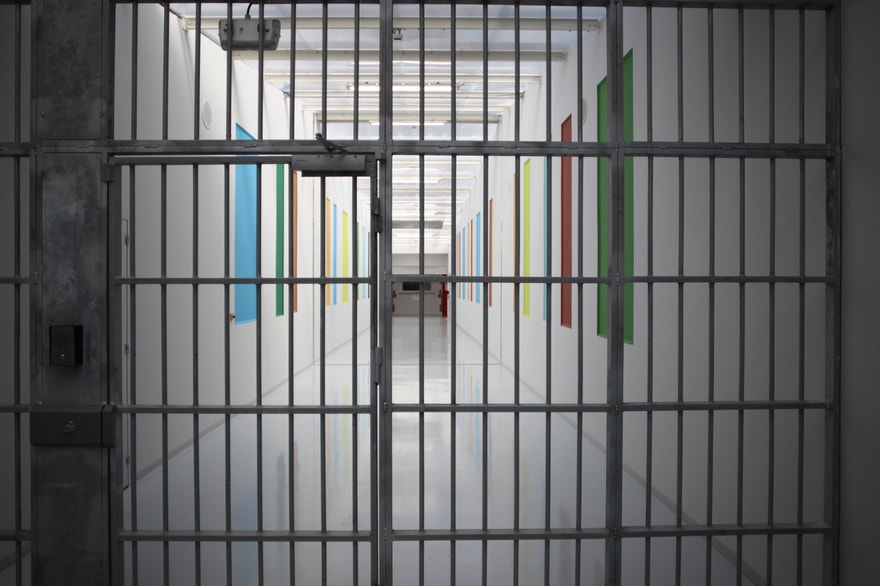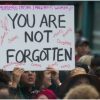We, the prisoners of Burnside, have united to fight for change. We are unified across the population in non-violent, peaceful protest.
We are calling for support from the outside in solidarity with us. We believe that it is only through collective action that change will be made.
We recognize that the staff in the jail are workers who are also facing injustice. We are asking for a more productive rehabilitative environment that supports the wellbeing of everyone in the system. These policy changes will also benefit the workers in the jail.
Our voices should be considered in the programming and policies for this jail. The changes we are demanding to our conditions are reasonable, and must happen to support our human rights.
The organizers of this protest assert that we are being warehoused as inmates, not treated as human beings. We have tried through other means including complaint, conversation, negotiation, petitions, and other official and non-official means to improve our conditions. We now call upon our supporters outside these walls to stand with us in protesting our treatment.
We join in this protest in solidarity with our brothers in prison in the United States who are calling for a prison strike from August 21st to September 9th. We support the demands of our comrades in the United States, and we join their call for justice.
Our demands in Nova Scotia are different, and we note that they are comparatively more modest. We are part of an international call for justice and we recognize the roots of this struggle in a common history of struggle and liberation.
We are not the first, and we will not be the last.
We recognize that the injustices we face in prison are rooted in colonialism, racism and capitalism. August is a month rich with the history of Black struggle in the Americas.
In 1619, the first ship carrying forcibly enslaved Africans arrived in Jamestown, Virginia. More than two hundred years ago, the first successful slave revolt created the first independent Black nation, Haiti. In the early nineteenth century, Gabriel Prosser and Nat Turner launched their rebellions, and in 1850, after the passage of the Fugitive Slave Act, Harriet Tubman began an Underground Railroad to Canada. A century later, the March on Washington, the Watts uprising, and the police bombing of MOVE have marked August as a time of great possibility and great pain.
In Canada, we recognize Prisoner Justice Day on August 10th as a time to remember all those who have died in custody in this country.
We also acknowledge the sacrifices made by our forebears, those who have fought to end the inhumane, racist treatment accorded prisoners. George Jackson, one of America’s prominent prisoner activists, was assassinated in San Quentin in August 1971, and his name is joined by others — Jonathan Jackson, William Christmas, James McClain, WL Nolen, and others.
In August 1978 in San Quentin, activist Khatari Gaulden died after being refused adequate health care for an injury suffered under mysterious circumstances. To honour his name and to fight for prison justice, a coalition of activists, inside and outside the prison walls, formed the Black August Organizing Committee. Starting in the “concentration camps” of California, Black August strikes swept through prisons across America.
In this tradition and together with those imprisoned south of the border, we, the prisoners of Burnside continue this legacy. We are not violent, we are standing up for simple issues of human justice.
We are organized together because conditions must change. Our demands are as follows:
1. Better Health Care
The province has a duty to provide adequate and ethical health care to everyone. Some of the issues we are facing in our health care include: having medication cut off or delays in providing necessary medication; long waits for x-rays and other medical services; lack of care for chronic and serious illnesses; access to specialist appointments; having our medical complaints dismissed; not enough medical staff; not receiving compassionate care.
Many prisoners face serious mental health issues, addictions, and chronic illnesses caused by poverty. We also know the prison environment causes many health problems. Medical treatment is a right: being deprived of health care is not part of our sentences.
2. Rehabilitation Programs
We are told that the purpose of jail is to rehabilitate us. We want to ask: How are we being rehabilitated if there are little to no programs helping us to get the work, education, and life skills we need to become productive members of society?
We need programs that address mental health and addiction problems; that teach us employable skills; that help us to learn financial management and other life skills; that help us build healthy relationships with our families; that help us reintegrate into society.
What is the point of jail if we are coming out with nothing changed or worse from when we went in?
3. Exercise Equipment
Exercise is necessary for our physical and mental health. We remind the province that we live in a province with winter. We require equipment so we can work out indoors. Exercise helps reduce stress, keeps us occupied in healthy ways, and helps us deal with the prison environment.
We often do not receive the yard time we are entitled to under the Corrections Act. This is a violation of the rights we already have. We call for adequate time for fresh air, exercise, and sunlight.
4. Contact Visits
If we are being scanned for drugs and other contraband, we want to ask the province: Why are we prevented from having contact visits with our families? If the body scanners eliminate contraband from entering the prison, then there is no safety or security reason why we can’t receive contact visits with our families and friends.
Many of us are parents. We call for contact visits that allow our children to see us not behind glass.
5. Personal Clothing and Shoes
If we are being scanned for drugs and other contraband, then we should be able to wear clothing from outside the institution.
The clothing and shoes provided by the jail is often inadequate. We have been provided with shoes of different sizes, shoes that do not fit, and we are not provided with winter clothing like gloves that allow us to go outside.
Wearing our own clothing helps prevent institutionalization, allows us to have appropriate clothing, and helps us feel like human beings.
6. Same Quality Food As Every Other Jail
We call for nutritious food in every jail that meets the needs of prisoners from all religious and cultural backgrounds. We do not understand why menu items can be provided in one institution but not in others. If menu items can be provided in other provinces, or in other facilities in this province, there should be no reason why they cannot be provided here.
We call for the province to respect the dietary needs of prisoners from different cultures. We have struggled in getting menus for religious prisoners. Prisoners have become ill including suffering serious nutritional deficits, and health damage. This is unacceptable and a violation of our religious rights.
7. Air Circulation
We call upon the province to improve the conditions in the jail. In the recent heat wave, the health of prisoners was endangered, particularly prisoners with existing or chronic health issues.
8. Healthier Canteen
We call for healthy items to be added to the canteen. Prisoners supplement the meals provided by the prison with these items that we purchase using our own money or money given us by our families. We do not believe that providing us only with items filled with sugar and chemicals helps promote our health. Junk food is being eliminated from schools, hospitals, and other institutions, so why are people in prison limited to these unhealthy options?
9. No Limits to Visits
Visits with our families and friends help promote our reintegration into society and keep us connected to our support systems. Our families are called upon to put resources into the system through paying for phones and canteen. If the jail can profit off our families, why do we face limitations in seeing them?
10. Access To Library
We call upon the province to immediately allow us to access the library. Legal materials in the library are necessary for us to access our legal rights in court.
We should not be limited in our attempts to educate ourselves.
***
Let us restate. All of these demands are reasonable, and promote our basic well-being. We recognize that the prison industrial complex is intended to divide us. We are unified in our purpose. They cannot segregate us all.
We call upon all people with a conscience beyond the bars to join us in sharing this statement, in writing the Minister of Justice, your MLA, and the Department of Justice to support our demands, to commit to learning more about the conditions in this province’s jails, and in taking actions in solidarity with our struggle.
We send a message of hope to our comrades in prisons all across this country and the world.
“It is said that no one truly knows a nation until one has been inside its jails. A nation should not be judged by how it treats its highest citizens, but its lowest ones.”
—Nelson Mandela




